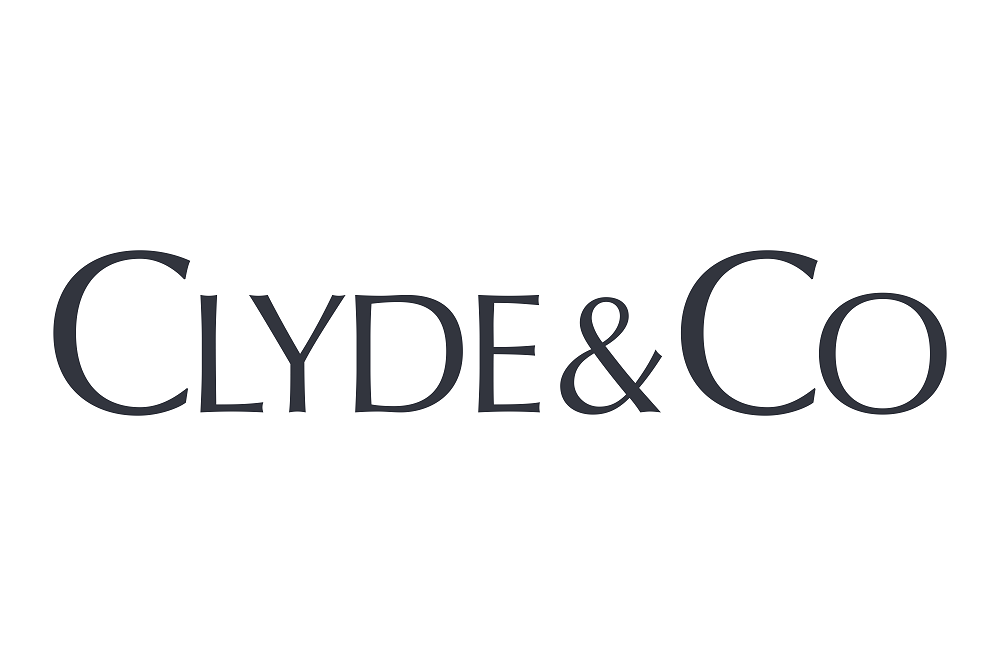Akash D. Brijpaul recently joined the firm as a senior associate, bringing with him a unique perspective to his singular focus on coverage law. Having successfully acted for both insurers and (formerly) insureds, he brings that depth of knowledge to his representation of clients from initial coverage review through to final judgment. Akash recently sat down with Lexpert to discuss in more depth his experience, the trends he’s seeing in his area of practice, and what the future holds for him at Clyde & Co.
Q: What led you to specialize in coverage law and how has your experience on both sides of the table shaped your approach today?
A: After being called to the bar in 2016, I had the opportunity to work directly under two of Canada's most senior and well-respected insurance coverage lawyers. I eagerly embraced the opportunity, encouraging my mentors to provide any and all constructive criticism.
Representing both insurers and insureds in complex litigation has been invaluable to my practice. I understand how both sides approach a coverage claim and where settlement opportunities might arise. A reputation for having successfully litigated on behalf of both individual and corporate insureds has led to better cooperation from opposing coverage counsel, who often represent insureds. They recognize that I have been in their shoes and understand their perspective, which frequently increases the chance of resolution.
Q: What strategies do you find most effective in navigating complex coverage reviews and litigation?
A: As one of my mentors always says, “boil it down.” Complex coverage reviews and litigation often boil down to uncertainties — either factual or legal. Effectively characterizing the dispute into a series of simple questions is often half the battle, helping to pinpoint settlement opportunities and identify where to apply pressure. Moving parts should be considered holistically. The method of dispute resolution — whether mediation, arbitration, or court — is crucial, as is understanding the optics for each party and whether one’s client benefits from either aligning with or distinguishing their position from one or more other parties. Establishing and, if possible, already having a working rapport with all counsel involved, whether opposing or otherwise, can greatly facilitate smoother negotiations, resolutions or at least minimize legal cost and delay. Lastly, if a decision is required, being familiar with the arbiter or judge, their previous decisions and paying close attention to any questions posed is vital. You cannot afford to just stick to your script. Questions show how the decision-maker is framing the facts and legal issues, and successful advocacy requires the ability to pivot and work within that cognitive framework to be persuasive. Earlier this year, I discussed these moving parts and strategies as a panelist at the Canadian Defence Lawyers’ 20th Annual Insurance Coverage Symposium. I highly recommend reviewing the insights shared by my fellow panelists, including members of the Canadian bench and a former Chief Justice, as they provided invaluable tips for further navigating these complexities.
Q: How have recent changes in the insurance sector impacted legal practice in coverage law?
A: Since joining Clyde & Co. a few months ago, I have engaged with many insurer clients throughout discussions and presentations, particularly focusing on my oral submissions and advocacy in Loblaw Companies Limited v. Royal & Sun Alliance Insurance Company of Canada, 2024 ONCA 145. The evolving jurisprudence on conflicts of interest, the tripartite relationship between liability insurer, insured and defence counsel, as well as the treatment of privileged defence information have led clients to seek practical solutions for identifying, mitigating and, if necessary, litigating conflict challenges. While I am always available to discuss the legal conclusions and questions raised by the 296-paragraph decision, I have focused on providing clients with actionable advice which can be immediately implemented.
Q: What are some of the emerging challenges and opportunities in the space?
A: I was proud to have argued the first cyber coverage decision in Canada — both for first-party property and third-party liability — in Iris Technologies Inc. v. Liberty Mutual Insurance, 2023 ONSC 4795. Although the insured ultimately abandoned the appeal, I have noticed a significant increase in cyber coverage claims. Trends in the U.S. suggest that cyber coverage will continue to grow exponentially such that premiums may one day surpass those of traditional “brick and mortar” insurance policies. This growth presents both challenges and opportunities for insurance coverage lawyers. Insurers may turn to a younger vintage of coverage practitioners who possess demonstrated expertise in IT, cryptography, data structures, and privacy law to aid in coverage assessment and claims handling. It has been both an exciting and fulfilling experience to draw on my knowledge of these previously distinct domains (coverage, privacy and technology) in service of our insurer clients.
Q: Any there any awards, recognitions, or publications that you would like to highlight?
A: In addition to the Loblaw and Iris decisions I mentioned, I am particular proud to have served as lead counsel this year before a panel of three arbiters, chaired by a former Ontario Chief Justice. This was a tremendous privilege, and I am deeply grateful to my mentor and the client for entrusting me with this opportunity, culminating in a successful outcome. Additionally, I have been a long-time contributor to the Annotated Commercial General Liability Policy loose-leaf by Sébastien A. Kamayah, Marcus B. Snowden, and Mark G. Lichty. This publication is an invaluable resource for CGL coverage lawyers and is frequently cited in Canadian courts (including the Supreme Court of Canada). I highly recommend it to practitioners in the field.
Q: Why Clyde & Co? What about the firm drew you to it?
A: Mentorship and the opportunity to work with people I admire were key factors in my decision to join Clyde & Co. Additionally, I was impressed by the global reach of the firm. A visit to the website confirms that insights are shared in English, French and Simplified Chinese—three languages I use regularly. The firm’s global footprint creates an exceptional work environment for coverage practitioners. Collaborating with experts from around the world allows us to better forecast risks and develop solutions for emerging issues. This global perspective is a significant asset for our clients in Canada, where coverage law is continuously evolving.
***
 Akash D. Brijpaul
Akash D. Brijpaul
With a deep knowledge of the insurer-insured dynamic and proven experience litigating both complex and untested insurance claims, Akash D. Brijpaul provides the firm’s insurer clients with real-world solutions tailored to their specific objectives and risk tolerance.
Akash’s coverage counsel practice includes reviewing and preparing policy wording drafting solutions, coverage opinions, position letters and client advocacy on property/casualty and financial/specialty lines forms including property, business interruption, commercial general, fidelity, umbrella and excess liability, professional liability and cyber insurance.
Akash has appeared at Canadian trial and appellate courts. He has represented both insurer and insured clients at large-loss mediations and acted as both lead and co-counsel in commercial arbitration proceedings.
Akash was called to the bar in 2016 after completing his articles at one of Canada’s top litigation boutiques. Immediately after his call, Akash restricted his practice to insurance coverage, honing his skills at a well-known coverage law boutique in Toronto, where he also acted as Chief Information and Privacy Officer. With a lifelong background in programming and data structures, Akash has a keen interest in the intersection of emerging technology, global privacy regimes and insurance coverage.
A lifelong learner, Akash is currently enrolled in courses from both Harvard Law School and Osgoode Hall. He is conversant and striving for fluency in both French and Mandarin.





